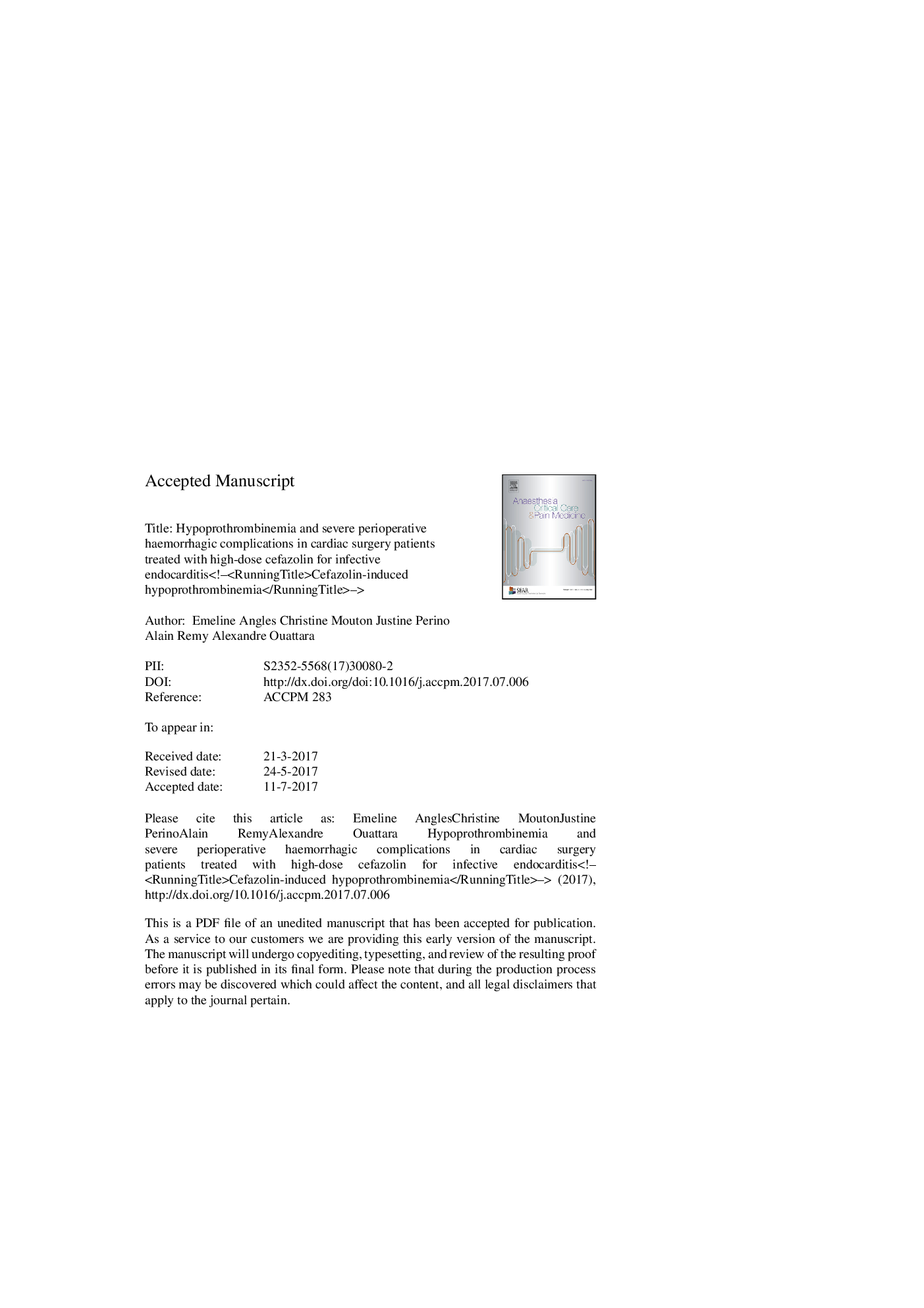| Article ID | Journal | Published Year | Pages | File Type |
|---|---|---|---|---|
| 8609005 | Anaesthesia Critical Care & Pain Medicine | 2018 | 15 Pages |
Abstract
Endocarditis is a serious and common disease that requires prolonged antimicrobial therapy. The recent shortage of oxacillin has led to the use of other antimicrobial agents such as cefazolin to treat endocarditis due to methicillin-sensitive Staphylococcus aureus. We describe four cases of life-threatening haemorrhagic complications (fatal in two cases) in patients treated with high-dose cefazolin. All of these patients with major bleeding presented with hypoprothrombinemia secondary to hypovitaminosis K. This adverse event may be due to inhibition of vitamin K epoxide reductase and/or gamma-glutamyl-carboxylase by the 2-methyl-1,2,3-thiadiazol-5-thiol group of cefazolin. This inhibition may result in hypoprothrombinemia by altering the synthesis of vitamin K-dependent coagulation factors. The increasing use of cefazolin, especially at a high dose and for a prolonged period of time, should be accompanied by regular monitoring of coagulation, including prothrombin index, and vitamin K supplementation.
Related Topics
Health Sciences
Medicine and Dentistry
Anesthesiology and Pain Medicine
Authors
Emeline Angles, Christine Mouton, Justine Perino, Alain Remy, Alexandre Ouattara,
